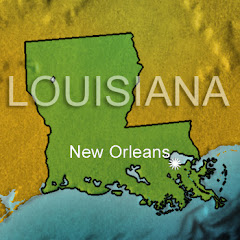Another example of some type of corruption in Louisiana: Fraud at the Louisiana property Insurance Corporation. It will take more than public outrage to end this type of behavior in Louisiana.
As public outrage spread over audit findings of fraud at the Louisiana Citizens Property Insurance Corp., elected officials questioned the role of the Louisiana Department of Insurance in the debacle and called for the state-sponsored insurer of last resort to be overhauled, privatized or scrapped.
Last week Legislative Auditor Steve Theriot released a long-awaited audit of Louisiana Citizens that found evidence of fraud and abuse by former chief executive Terry Lisotta. The report detailed false billing or inappropriate expenditures on fishing excursions, quail hunts, football tickets, golf outings, cigars and trips to Bermuda, New York and Florida.
Lisotta has been mum on the audit findings. He opted not to comment in the audit, and has not responded to queries from The Times-Picayune.
Louisiana residents battling Citizens in court, or stung by high insurance bills and the special assessments to help Citizens pay its claims, demanded to know why public officials didn't protect them.
"The Legislature created this monster, and no one sat on it and looked at what went on, and now we have to pay for it," said Uptown resident Lurana Hahna, who's been firing off angry letters all week. "It just floors me."
Citizens is governed by a board that's roughly half public appointees and half insurance industry appointees, though the board's composition will shift next year because of changes made by the Legislature.
The board has substantial overlap with the Property Insurance Association of Louisiana, a fire rating agency that did the work for Citizens, and the Louisiana Automobile Insurance Plan, an obscure state-run auto insurer of last resort, which handled Lisotta's contract and much of the bills. The result is an entangled morass with little delineation of responsibility.
Whether Lisotta's expenditures are criminal or merely indicative of shoddy management will depend greatly on whether Citizens, PIAL and LAIP are found to be public entities, as Theriot believes. PIAL filed a lawsuit in a Baton Rouge court challenging that designation.
By law, the Citizens board includes the commissioner of insurance, state treasurer, and the chairmen of the House and Senate insurance committees, all of whom are up for election this fall.
Several of those board members sought to distance themselves from the Citizens debacle. While they credited Insurance Commissioner Jim Donelon for replacing top management at Citizens, PIAL and LAIP, they blamed him for systemic problems at the agency, questioning the role of the insurance department in creating and monitoring Citizens.
State Treasurer John Kennedy, a newly declared Republican who is thought to be eyeing a run for the U.S. Senate next year, said he wasn't able to attend board meetings before the storm because of a scheduling conflict with the bond commission. He said the insurance department under former Commissioner Robert Wooley set up Citizens so that it relied upon the insurance-industry-dominated PIAL, which Wooley's wife, lawyer Julie Fusilier, now represents.
Rep. Karen Carter, D-New Orleans, said that "a lot of times, you can't detect these things until audits come out," and ultimately "the buck stops" with Donelon.
Sen. James David Cain, R-Dry Creek, said he's been screaming about problems at Citizens for years and couldn't get anyone to listen. He said he got so frustrated he stopped going to the meetings and gave his seat to someone else.
Spreading the blame
The Legislative Audit Advisory Council has scheduled a hearing on the audit Oct. 15, and has subpoenaed the management of Citizens and related groups to testify.
Committee Chairman Sen. Tom Schedler, R-Mandeville, blames both the board and the insurance department.
He said the insurance department bears some culpability for the Citizens problems because Donelon and Chief of Staff Chad Brown worked in Wooley's insurance department when Citizens was formed. Donelon's insurance department also had appointees on Citizens and related boards, including Brown, the Citizens chairman until earlier this year.
Schedler questioned how the board didn't catch the expense account problems. "Where was the board of directors?" Schedler asked. "No one was asking any questions? I find it unbelievable that here was two legislators, State Treasurer John Kennedy and Donelon and no one heard about these trips to Destin? Somebody had to have known."
Not to be upstaged by Schedler's Oct. 15 meeting, Kennedy has called for a special meeting of the Citizens board on Oct. 11 to address the findings of the audit report in a public hearing, saying he believes that Lisotta couldn't have acted alone.
"Somebody approved these expenses. I do not believe Mr. Lisotta spent this money by himself," Kennedy said. "It's hard to be taking care of your business when you're at a spa in Bermuda smoking a cigar. All of those costs were passed on. These costs were passed on to not only Citizens policyholders, but to every policyholder in Louisiana."
Realm of responsibility
The finger pointing is likely to create new challenges for Donelon, who successfully kept legislative changes to a minimum. Donelon is an ardent proponent of solving Louisiana's insurance woes through private competition, and is loath to see the Legislature follow Florida in giving the state a bigger role in the insurance industry.
"The structure itself is not broken," Donelon said.
Donelon defends his handling of problems at Citizens, saying that he replaced top management at Citizens the moment he learned that Citizens was unable to produce audited financial statements because of a massive computer crash -- even though it wasn't clear that he had the authority to do so.
The law that created Citizens gives the insurance department the power to review and approve Citizens rate filings, and to require audited financial statements, but it does not say that the insurance commissioner has the power to hire and fire administrators. Donelon realized he could do it only when a Citizens attorney advised him that he had that authority through a plan of operation adopted by the board.
Donelon said he accepted responsibility for problems at Citizens "to the extent that the commissioner's designee is chairman of the board," because Brown sat on the board, but Donelon points out that one individual does not make a controlling majority. "That's only one member of the board," he said.
The insurance commissioner said he originally sought to bring in new management around Lisotta because he thought the problem was incompetence, not malfeasance. "He had been on that job for years. I did not want to ruin the man; I merely wanted to fix the problem."
Donelon later fired him, and as soon as he was briefed on Theriot's early audit findings, he worked to get Lisotta removed from the Louisiana insurance plans, which Donelon now wants to disband and hand over their operations to the New Jersey company ISO and the Rhode Island nonprofit AIPSO.
Donelon said the unfolding tale of Lisotta's expense account excess is unsettling. "Now I'm angry, because this is certainly a betrayal of the policyholders who pay the price of this largess," he said. "Ultimately, the policyholder pays the bill for this abuse."
Major overhaul?
But other public officials say the early results of the Citizens audit makes them think the group should be overhauled, disbanded or privatized.
Kennedy further called upon the Legislature to revisit the structure of Citizens and how it handles cost overruns. Under the old system of the FAIR and Coastal plans, insurance companies would pay for any cost overruns in proportion to how much business they did in the state. Under the Citizens plan created in 2003, the insurance companies pay nothing and cost overruns get billed to owners of insured property across the state.
"Under the old law, any surcharges need to be paid by the industry. This legislation moved that surcharge from the backs of the industry to the backs of the people of Louisiana. I think it's time to revisit that," Kennedy said.
But Donelon said the old Fair and Coastal plans drove insurers out of the state and worked to raise consumer rates. Under the old system, State Farm, which has about one third of the insurance business in Louisiana, would have been handed a bill for $500 million for Citizens costs after the 2005 hurricanes.
Insurance companies tried to reduce their exposure to sudden whopping bills by reducing the amount of business they did in the state, Donelon said. And because rates for the following year are based on a company's loss experience, companies would raise rates to recoup their money, making rate-setting volatile and unpleasant for everyone.
"I truly believe the new system serves us much better, despite the abuses that the legislative audit made public. That abuse could have been done under the old system. The structure had nothing to do with the integrity and the morality of the people in charge," Donelon said.
More explaining to do
He urged other elected officials to let the new management at Citizens straighten things out. The new board will include professionals such as accountants, bankers and district attorneys. Citizens is also separating itself from PIAL and LAIP, and will have its own employees.
Schedler said the insurance department has more explaining to do about the structure and oversight of Citizens.
"Jim's my friend, but he's coming out astounded and horrified and dejected," Schedler said. "If you go back and look, Mr. Donelon or his designee was not only a board member of Citizens, but a board chairman of Citizens. It's hard for me to understand why he can be so astounded.""


















No comments:
Post a Comment